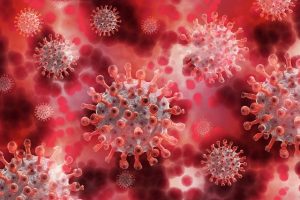3 signs may be polyps in the intestine or bowel cancer later
- Mifepristone: A Safe and Effective Abortion Option Amidst Controversy
- Asbestos Detected in Buildings Damaged in Ukraine: Analyzed by Japanese Company
- New Ocrevus Subcutaneous Injection Therapy Shows Promising Results in Multiple Sclerosis Treatmen
- Dutch Man Infected with COVID-19 for 613 Days Dies: Accumulating Over 50 Virus Mutations
- Engineered Soybeans with Pig Protein: A Promising Alternative or Pandora’s Dish?
- Severe Fever with Thrombocytopenia Syndrome (SFTS): A Tick-Borne Threat with High Mortality
3 signs may be polyps in the intestine or bowel cancer later
- Red Yeast Rice Scare Grips Japan: Over 114 Hospitalized and 5 Deaths
- Long COVID Brain Fog: Blood-Brain Barrier Damage and Persistent Inflammation
- FDA has mandated a top-level black box warning for all marketed CAR-T therapies
- Can people with high blood pressure eat peanuts?
- What is the difference between dopamine and dobutamine?
- What is the difference between Atorvastatin and Rosuvastatin?
- How long can the patient live after heart stent surgery?
3 signs may be polyps in the intestine or bowel cancer later. Anyone can observe their own stool first after going to the toilet, and don’t rush to flush, so that they can discover some problems in the body in time.
There are several digestive organs in the human body, and the intestine is one of them. It starts from the pylorus in the stomach and ends in the anus. It belongs to the longest section of the digestive tract, and its function is also very important.
For example, the small intestine is mainly responsible for absorbing the nutrients of food, the large intestine is responsible for concentrating food residues and turning them into feces, and finally the rectum is responsible for transporting feces to the anus for excretion.
Therefore, the intestine is very important to people. Anyone can usually pay attention to the health of the intestine through defecation. If the following three signs appear, they must be alert to the growth of polyps in the intestine.
Changes in stool characteristics.
The stool of a normal person should be smooth and striped. If you find that the characteristics of the stool have changed, for example, the stool has become thinner in the near future, and the surface is also uneven.
Be wary that polyps have grown in the large intestine, and the large intestine has become It is narrower than before, so the stool is also squeezed thinner.
Constipation.
Many people have experienced constipation, most of which are caused by eating too spicy, irritating, and hard food.
If the amount of water you usually drink is relatively small, the stool will become dry and hard, so it cannot pass the rectum to the anus smoothly, and people cannot have the desire to pass stool.
If polyps grow in the large intestine, constipation will often occur because the polyps block the intestines and stools cannot pass through the polyps, which will result in constipation.
Stool stays in the human body for a long time, and the intestines repeatedly absorb it, which not only makes it easier for the body to absorb more toxins, but also makes people’s skin worse, acne and stains on the face, and it is also easy to cause Problems with the intestinal mucosa increase the risk of bowel cancer.
If the intestinal polyps are not removed, the patient may still have intussusception, causing serious damage to the body.
Blood in the stool.
Polyps in the large intestine are not treated after they are not treated. Polyps are likely to ulcerate and bleed after being rubbed by the stool. This blood will be discharged with the stool. Careful people will find that their stools are dark in color or mixed in the stool. With blood.
However, some people mistakenly treat this condition as hemorrhoids. After using the medicine, the blood in the stool still cannot be improved.
There is a certain difference between blood in the stool caused by colorectal polyps and bleeding from hemorrhoids. For example, blood in the stool caused by colorectal polyps will cause blood stains on the inside and outside of the stool, and usually no fresh blood drips from the anus.
If it is blood in the stool caused by hemorrhoids, the patient will obviously find that the stool is covered with bright red blood, there is no blood stain inside, and blood may drip from the anal area. When you wipe it with a tissue, you will also see bright red blood stains, as well as the anal area. There is an itching sensation.
Anyone can observe their own stool first after going to the toilet, and don’t rush to flush, so that they can discover some problems in the body in time. If you find any of the above three symptoms, it is best to go to the hospital for colonoscopy, and deal with it as soon as you find polyps.
Since intestinal polyps are also a kind of precancerous lesions, if there is no timely intervention and treatment, the polyps are likely to undergo malignant transformation, causing people to suffer from intestinal cancer, causing greater damage to the body, and posing more threats to life.
3 signs may be polyps in the intestine or bowel cancer later
(source:internet, reference only)
Disclaimer of medicaltrend.org



